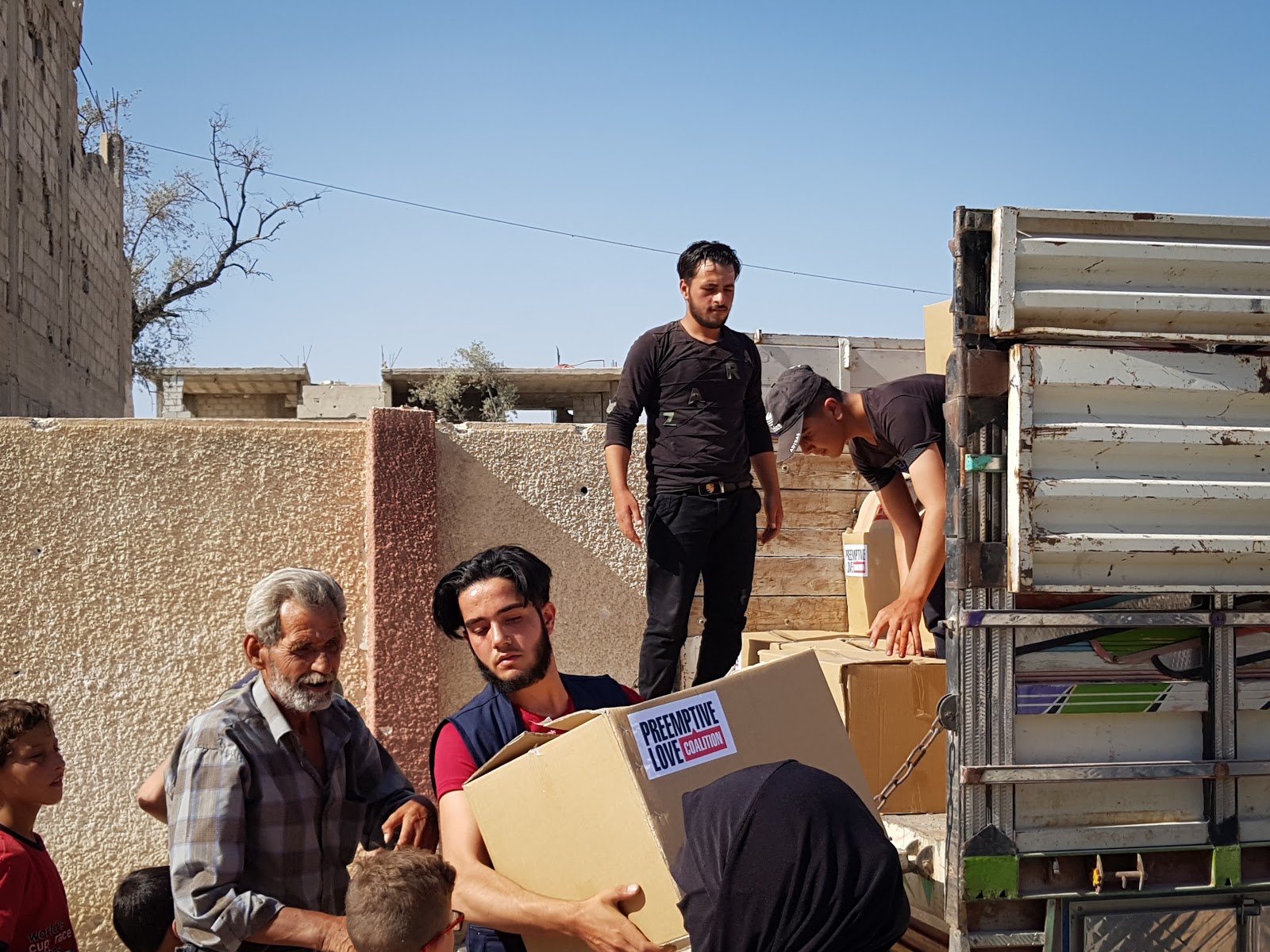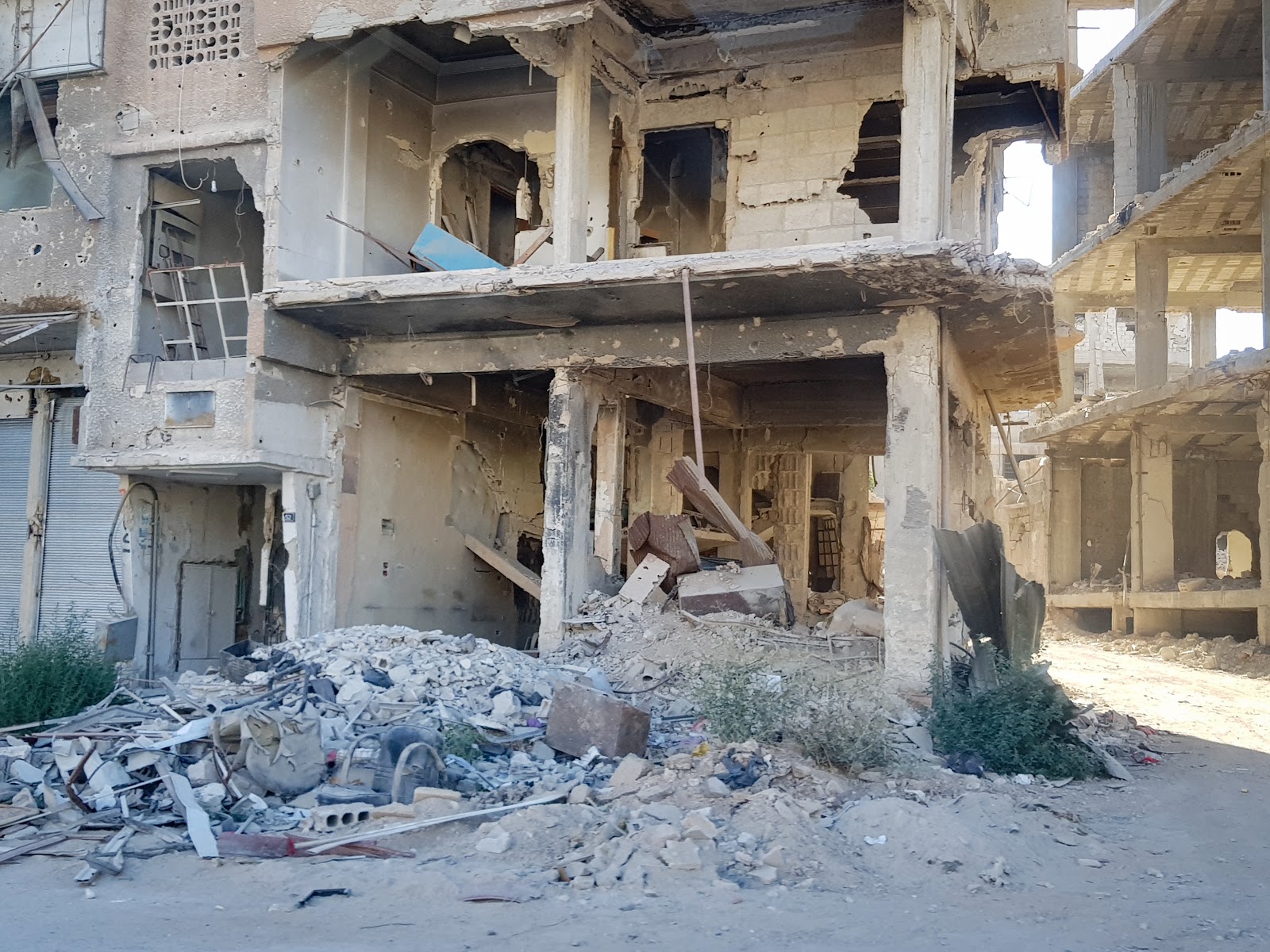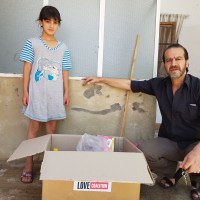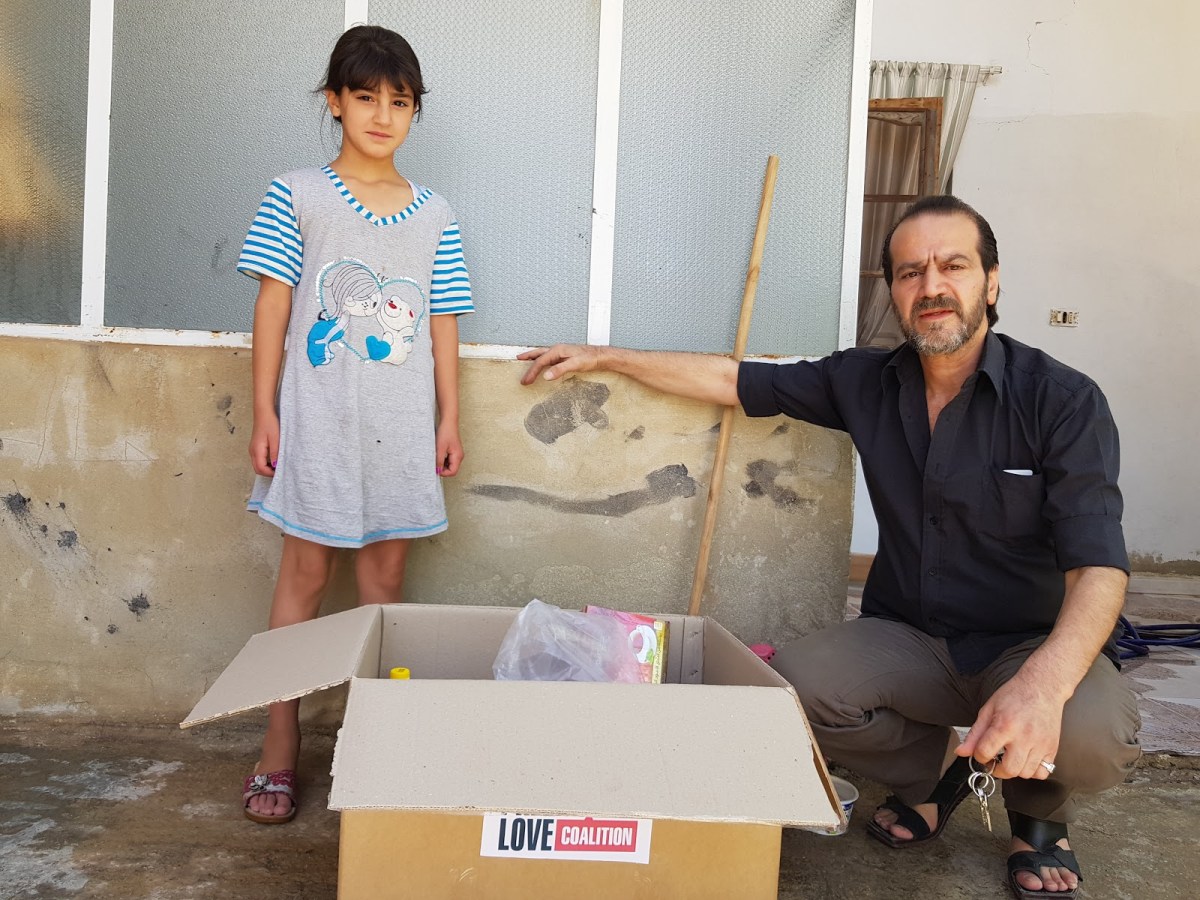Shame.
“I feel ashamed every day when I take something from the shop [on credit] to feed my kids. I am being humiliated and dishonored every day. If I get some help, some food on the table, I will pay a part of my bill and reduce the amount I owe my employer.”
“I need to stop drowning.”
We don’t need the world to kick us when we’re down. Most of us are good enough at that ourselves. Imad hears the voices in his head constantly, the voices of shame, condemning him for not taking better care of his family. But swear to God, he is doing everything he can.
Imad currently works at a local grocery store. It’s the only work he could find in his Syrian community, still destroyed by war. “I am working 12 hours a day in a grocery store, for $3 a day. And this barely pays my rent. Please understand…I am stuck, doing this kind of work that pays nothing and not able to find another job. I can’t even dare to think about starting my old business again, because of my financial situation.
I get my groceries by debt. I save my pay for the rent, to keep my family in a home, so as not to become homeless. How long will my employer be patient?”
There is a sharpness that comes with the pain and indignity of poverty. It’s particularly sharp when you’re poor through no fault of your own. Imad did everything right. He worked hard, honed his skills as a photographer. He built up a business specializing in event photography—parties, birthdays and weddings.
Imad was at the center of the happiest moments of life in pre-war Syria. He captured the special memories families want to keep forever. He worked hard to provide a good living for his wife and three little girls—a comfortable house, a car.

Imad is the provider for his family. It is his identity as much as his role in the family. War took the business he worked so hard to build. It took his house and his car. It took his neighborhood and the life they knew. Imad still carries the years of knowledge of how to run a successful business, but living in a bombed-out city, he has no clients… no happy occasions to capture. It all takes the sharpness of poverty he feels, and leans in to give it another hard twist in his heart.
“I am not saying I want to float with cash overnight, just to stop the wheel from taking me backward,” Imad confessed.
When we showed up in Imad’s neighborhood recently with food packs for he and his neighbors—enough basic shelf-stable food for his family to eat for a whole month—we didn’t solve all of his problems. But we did give Imad some space to breathe.
Every day for the next month he doesn’t have to worry about providing the next meal for his children. Every day for the next month, Imad can go into work with his head held high, knowing that he will not be asking for food on credit that day to feed his family. There are 77 pounds of groceries—the kinds of food they eat every day—in his kitchen cupboards. When they open the kitchen cupboard doors, the shelves aren’t bare.
This breathing space will give Imad the financial space to pay back some of his debt to his employer. It will give him the emotional space to think about some options for his future.
Money can’t buy time. But money can change how heavy… or light time feels.

In Syria and Iraq, where the situation is stable now, we are investing in education and small businesses—development opportunities that allow communities to get back on their feet. But where war is still raging, or the shadow of war is still a fresh, black mark on the lives of Syrians, we continue to show up with the kind of aid they need today.


